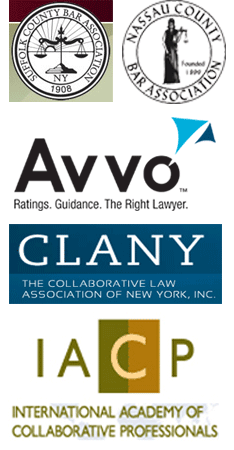by Robert E. Hornberger, Esq | Dec 31, 2013
As we bid farewell to 2013, we welcome 2014, and count our blessings as we prepare for a new year full of hope and promise.
While each new year brings with it hope, we know it will not be without its challenges. Fortunately, each new year is a blank canvas and a chance to overcome new challenges and achieve new heights of success.
We hope 2013 was good to you and that 2014 will be even better.
We wish you and your family the happiest, healthiest and most prosperous 2014.

by Robert E. Hornberger, Esq | Dec 24, 2013
With the holiday season upon us, we at Hornberger Verbitsky, P.C. find ourselves reflecting on the past year and on those we have helped and those who have helped us.
We count among our blessings the many fine friends we have found among our clients and the best employees we could hope for. We are truly fortunate to have our customers as our friends and our staff as our extended family.
We look forward to spending some quality time with our family and friends during this holiday season and hope that you find the time to do the same with yours.
Because the goodwill of those we serve is the foundation of our success, it’s a real pleasure at this time of year to say “thank you” as we wish you a holiday season of Peace and Happiness.

by Robert E. Hornberger, Esq | Dec 1, 2013
To serve you better, we’ve moved to new, more comfortable offices just down the road from our former location.
Now, rather than go North of the Long Island Expressway (Rte 495), we’re just south of the LIE at:

The Melville Offices of Robert E. Hornberger Esq. PC
at 445 Broadhollow Road (Route 110)
Suite 205
Melville, New York 11747
445 Broadhollow Road
Suite 205
Melville, NY 11747
Our new offices are more modern and comfortable, and, importantly if you had visited us at our former offices, with much better parking and other amenities.
Give us a call at 631-923-1910 to make an appointment to visit our new offices.
by Robert E. Hornberger, Esq | Nov 21, 2013
 Child Custody determinations are a special form of legal dispute in Nassau County and Suffolk County, Long Island, NY. Although there are two official parties to the legal dispute, often the mother and the father, the unofficial third party that is the main concern of the controversy is the child. Because the child is the main concern of the courts, the method used by most states in resolving child custody disputes is what is known as the “best interests of the child” standard. Because this standard only considers the implications on the child as a neutral third party, it is technically neutral and does not favor either the mother or the father in the dispute.
Child Custody determinations are a special form of legal dispute in Nassau County and Suffolk County, Long Island, NY. Although there are two official parties to the legal dispute, often the mother and the father, the unofficial third party that is the main concern of the controversy is the child. Because the child is the main concern of the courts, the method used by most states in resolving child custody disputes is what is known as the “best interests of the child” standard. Because this standard only considers the implications on the child as a neutral third party, it is technically neutral and does not favor either the mother or the father in the dispute.
Is the “Best Interests of the Child” Standard Really Neutral?
Many professionals in the legal field would answer that the current “best interests of the child standard” is not actually neutral in practice. Statistical evidence shows that custody is disproportionally awarded to the mother of the child in most disputes. Statistically, the courts seem to believe that the mother is more often than not the party best suited to care for the child. If this were intrinsically true, there would be no dispute that awarding custody to the mother was always in the best interests of the child. In actuality, however, this is not always the case.
Why Gender Bias in Child Custody on Long Island, NY?
There are several reasons why this gender bias exists in child custody disputes.
- First and foremost, the standard used to determine custody is problematic.
- General public sentiment, and historical judicial sentiment, seems to favor mothers as guardians.
- The combination of the two creates a situation forcing the father to disprove a presumption that the mother is the better guardian, which makes it much more difficult for a father to win custody of his child.
‘Best Interests’ Standard Enables Too Much Flexibility?
Allowing courts to use the best interests of the child standard is beneficial, as it allows for flexibility in child custody decisions. Custody disputes are complicated and unique situations. Allowing judicial discretion in a standard allows the courts to tailor decisions to each unique circumstance. However, this flexibility may also be the downfall of the “best interests of the child” standard. Because a flexible standard lacks objective elements or factors, the ultimate determination lies in the opinion of the individual adjudicating the dispute. Consequently, if a judge, mediator, etc. lacks objectivity; it is his or her opinion that decides the fate of the child.
Discretion Favors Mothers over Fathers in Child Custody Disputes
Such wide discretion would not be problematic if public and judicial sentiment with respect to custody matters were different. However, the general public outlook on custody-related matters seems to be that mothers are naturally better caretakers to their children than fathers. Furthermore, a history of judicial decisions shows that judges share this particular attitude with the public as well. Some courts have even explicitly stated that if all circumstances were equal between the mother and the father, the mother should be awarded custody. Matthew B. Firing, In Whose Best Interests? Courts’ Failure to Apply State Custodial Laws Equally Amongst Spouses and Its Constitutional Implications, 20 Quinnipiac Prob. L.J. 223, 249 (2007). This effectively creates a rebuttable presumption that the mother, all other things being equal, is the better caretaker. As a result, instead of being judged by an equal standard, an unfair burden of proof is placed on the father in custody disputes. With a presumption that the mother is the better custodian, the father is placed in the position of having to prove that the mother is an unfit parent. The “best interests of the child” are considered, but in a different way than intended. The judge is not actually considering, objectively, which parent provides the best situation for the child, but whether the father has proven that the mother is unable to provide the best possible environment for the child.
Gender Bias Due Process Claims Unsuccessful
In addition, gender-biases in child custody determinations implicate several constitutional issues under the Equal Protection Clause and the Due Process Clause. Courts have interpreted the Equal Protection Clause to apply to gender-based inequalities, and the Due Process Clause to protect a fundamental right to privacy in family matters. Child custody has been assumed to be a fundamental right under the Due Process Clause. Although these clauses may seem to give legal merit to a father’s challenge of gender bias in the best interests of the child standard, these challenges have been historically unsuccessful.
“Best Interests” Standard Not Fairly Applied to Fathers
Gender bias in child custody disputes is prevalent, as mothers are awarded custody of their children disproportionately more than fathers in judicial proceedings. While the “best interests” standard is a good method to gauge the best environment for the child involved in a custody dispute, the standard is not always properly and fairly applied by the courts. Therefore, it may be time to reevaluate our societal outlook on child custody and make some real changes that would result in more equitable decisions for fathers.
Questions About Child Custody and Visitation on Long Island?
See this page to learn everything you need to know about Child Custody and Visitation on Long Island.
To learn more about what you need to know about Child Custody on Long Island, visit this page on Child Custody or contact us at 631-923-1910 for a complimentary consultation.
Long Island, NY Child Custody Questions?
Call Us. We’re Here to Help in Nassau & Suffolk
The law firm of Robert E. Hornberger, Esq. P.C. has regularly and successfully represents both mothers and fathers in Child Custody disputes in Nassau County and Suffolk County courts on Long Island. If you have questions about your Child Custody case, give us a call at 631-923-1910 or fill out the short form on this page for a free, complimentary consultation where we can discuss your case and advise you on the best way forward. We’re here to help.
by Robert E. Hornberger, Esq | Oct 3, 2013
 Nobody on Long Island enters into a marriage anticipating that it will end in a divorce. Why would you? That said, we all know the statistics of how many marriages end in divorce, nationally and locally. In light of that reality, many Long Island couples believe that it’s not a bad idea to consider the benefits of having a pre-marital agreement in place as a precaution to preserve your assets should your marriage end in divorce.
Nobody on Long Island enters into a marriage anticipating that it will end in a divorce. Why would you? That said, we all know the statistics of how many marriages end in divorce, nationally and locally. In light of that reality, many Long Island couples believe that it’s not a bad idea to consider the benefits of having a pre-marital agreement in place as a precaution to preserve your assets should your marriage end in divorce.
Prenuptial Agreements Minimize Future Conflict
A properly prepared and executed Prenuptial Agreement has the potential to minimize the possibility of conflict upon the dissolution of a marriage, reducing the need for the litigation of financial issues between the parties. Parties considering a prenuptial agreement should pay particular attention to certain requirements that need to be met in order to properly execute a prenuptial agreement.
-
Full Financial Disclosure
To ensure the validity of the contract, there are several legal requirements that must be fulfilled when entering into a pre-nuptial agreement. In order for a prenuptial agreement to be considered valid, there must first be complete financial disclosure between the parties entering into the contract. The purpose of complete financial disclosure is that it eliminates the possibility that one party may claim ignorance pertaining to the other party’s financial resources at the time the parties entered into the agreement. A party may claim ignorance if the other party fails to provide him or her with specific financial information, and knowledge of that information would have influenced his or her decision to enter into the per-marital agreement in the first place. Both parties should fill out a Statement of Net Worth to avoid this situation from occurring. Doing so will guarantee that each party is informed of the other party’s financial position when they enter into the prenuptial agreement.
-
Separate Legal Representation
Another factor that should be taken into consideration to preserve the validity and integrity of a prenuptial agreement is that both parties should be represented by separate counsel when negotiating the terms of this type of contract. Retaining separate counsel will ensure that both parties are represented fairly during the drafting of the agreement. It will also eradicate the potential for any claims of attorney bias in the preparation of the terms of the agreement.
-
Have Your Prenuptial Agreement Notarized to Avoid Disputes Later
In the execution of a prenuptial agreement, parties must also properly acknowledge their signatures on the document before a notary public. Failure to do so may result in the invalidity of the agreement. This was the case in Matisoff v. Dobi, where both parties acknowledged that they had signed a prenuptial agreement, but the New York Court of Appeals nevertheless held that the parties should have complied with the Domestic Relations Law, which requires a certificate of acknowledgment. Recognition of the authenticity of the signatures by the parties was not considered adequate for the purposes of satisfying the acknowledgment requirement under the statute in this case. However, in Bloomfield v. Bloomfield, the Court of Appeals decided that a premarital agreement was not required to have this type of acknowledgment. In any case, clients should be mindful of how their prenuptial agreements are executed in order to prevent the possibility of such litigation over the validity of an agreement from occurring.
-
Take Time to Consider the Terms of Your Prenuptial Agreement
In addition to the above considerations, parties must also be afforded sufficient time to contemplate the terms of an agreement. The time in which a prenuptial agreement is signed in relation to a marriage is an important factor for courts in determining whether a party may have signed an agreement under duress. This aspect of entering into a prenuptial agreement relates to fairness and the notion that the agreement the parties are entering into is free from any “undue and unfair advantage.” Matter of Grieff, 92 N.Y. 2d. 341 (1998).
Prenuptial Agreements Protect Your Property
Prenuptial agreements serve to protect the separate property rights of parties entering into such an agreement. A prenuptial agreement is not only beneficial in that it can aid in the preservation of assets in the event of a divorce, but also in that it can help to reduce the potential for litigation over certain financial disputes that may arise between parties. While prenuptial agreements are a useful tool in this sense, it is essential that parties seeking a prenuptial agreement ensure the contract’s validity by taking the necessary steps to guarantee its proper execution. This can be done by engaging in full financial disclosure, obtaining separate representation for both parties, properly acknowledging the signatures on the agreement before a notary public, as well as allowing for sufficient time between the signing of the agreement and the nuptials.
Contact Us for More Information on Prenuptial Agreements in Nassau, Suffolk, Long Island, NY
Do you have questions about Prenuptial Agreements on Long Island? Contact us today by calling 631-923-1910 or filling out the short form on this page for a free, complimentary consultation where we can discuss the issues involved in acquiring a prenuptial agreement before your marriage.
For more information about Prenuptial and Postnuptial Agreements, please read Your Guide to Long Island Prenuptial & Postnuptial Agreements
by Robert E. Hornberger, Esq | Aug 8, 2013
As a Family Law attorney practicing in Nassau County and Suffolk County on Long Island, NY, the Law Office of Robert E. Hornberger, Esq. PC is often called upon to represent fathers and mothers in paternity cases in Nassau County and Suffolk County courts.
How Nassau & Suffolk Courts Determine the Child’s Father
 Under New York law, there is a rebuttable presumption that the husband of a woman who gives birth during the marriage is the legal father of the child. Therefore, the husband will be considered the legal father of the child even if he is not the biological father. This presumption is rebuttable, meaning that a petition for paternity can be filed to determine if the husband is in fact the father of the child. When a child is conceived through natural methods of conception, there is a rebuttable presumption concerning paternity, but what about when the mother is artificially inseminated?
Under New York law, there is a rebuttable presumption that the husband of a woman who gives birth during the marriage is the legal father of the child. Therefore, the husband will be considered the legal father of the child even if he is not the biological father. This presumption is rebuttable, meaning that a petition for paternity can be filed to determine if the husband is in fact the father of the child. When a child is conceived through natural methods of conception, there is a rebuttable presumption concerning paternity, but what about when the mother is artificially inseminated?
Domestic Relations Law Section 73
According to New York Domestic Relations Law Section 73, there is an irrebuttable presumption of paternity when a married woman gives birth to a child via artificial insemination when both the husband and wife as well as the physician who performs the service consent in writing. However, there is only an irrebuttable presumption that the husband is the legitimate father of the child if all the statutory elements are met. But what happens when an element is not met?
Artificial Insemination Can Cloud Paternity
Prior to the enactment of Domestic Relations Law Section 73, there was a rebuttable presumption that the husband was the legitimate father of a child born during the marriage even if the husband did not provide written consent. The presumption of legitimacy under common law stems from a strong public policy in favor of the legitimacy of children.
Husband Must Prove He is Not the Father
Upon the enactment of Domestic Relations Law Section 73, if the husband does not provide the requisite written consent and the husband objects to recognizing his status as the legitimate father of the child, then there is no irrebuttable presumption of legitimacy because the statutory requirements were not met. However, even in cases where the husband does not consent and Domestic Relations Law Section 73 is inapplicable, the husband must still prove by clear and convincing evidence that he is not the father of the child. Two major factors to consider are whether the husband held himself out as the father of the child or children and whether he made a clear objection to the procedure. These are only two factors in a complicated web of factors that a judge would need to consider in determining whether the husband has met his burden of proof.
What About Unmarried Fathers?
It is important to note that both the common law presumption of legitimacy and Section 73 only pertain to married couples. How does an unmarried father establish paternity? The easiest method for an unmarried father to establish paternity is through voluntary acknowledgement. If a father no longer wishes to recognize his paternity after a voluntary acknowledgement, he can petition to vacate that acknowledgement within 60 days. However, after 60 days the father must prove that there was fraud, duress or mistake of fact involved in order to petition to vacate.
Paternity Actions in Nassau County & Suffolk County, NY
Another method of establishing the paternity of an unmarried father is to bring a Paternity Action to determine the father of the child. The alleged father may bring a paternity action, but the mother of the child, the child’s guardian, a public welfare official, or as deemed appropriate by the Family Court Act, may also bring a paternity action. The judge has the discretion to allow or deny a paternity action based on the best interests of the child.
Unmarried Fathers Must Act Quickly to Establish Paternity
Pursuant to Family Court Act section 517, an unmarried father has until 21 years from the birth of the child to establish paternity. A putative father who wishes to exercise his paternity rights should do so as soon possible, because unmarried fathers do not have the same parental rights as married fathers. For example, if the father’s parental rights were going to be terminated, only a legal father or a registered putative father is entitled to notice of the potential termination. A legal father is considered a father who has voluntarily acknowledged paternity, or a court has determined his paternal status. A registered putative father is a father who registers his intent to claim paternity with The Putative Father Registry, but he must do so in a timely manner. By registering with The Putative Father Registry, the father has the right to notice of all court proceedings involving the child and the child will then be entitled to inherit assets from the father.
Want More Information?
The Long Island Divorce Attorneys at Robert E. Hornberger, P.C. are dedicated to keeping current on the latest rulings with respect to divorce, paternity and father’s rights in Nassau County and Suffolk County courts and how those rulings can affect their clients. Call us at 631-923-1910 or fill out the short form on this page and we will be happy to demonstrate how we can help you during a free consultation.
by admin | Nov 1, 2012
Tirelessly Fighting for You & Your Family
Divorce Lawyers & Family Law Attorneys serving Suffolk and Nassau County, NY
631.923.1910
Affordable Fees | Payment Plans Available
Call Now for a FREE Consultation
Robert E. Hornberger P.C., Attorneys and Counselors at Law is a dedicated Divorce and Family Law firm conveniently located to Long Island residents of both Nassau County and Suffolk County from its offices in Melville, New York.
Experience & Success Protecting Clients Like You
Our attorneys use our extensive experience, track record of success and passion for all facets of divorce and family law to affordably protect your interests. We work every divorce and family law issue with caring concern and dedicated personal attention.
Our Personal Attention Pays Long Term Dividends
We recognize that every divorce or family law case is unique and yours will have implications in your life for many years to come. Not every case can be negotiated out of court; not every case has to be litigated. We will take the time to understand the specifics of your case, listen to your personal goals and desires, and help educate you on the options available to you.
We Only do Divorce & Family Law

Robert E. Hornberger, Esq. is a proud member of these prestigious legal organizations and groups.
You wouldn’t go to a foot doctor for a heart transplant. That same philosophy should apply when hiring your divorce or family law attorney. Our firm has extensive and successful experience resolving all matters of divorce and family law issues for our Long Island clients. From contested divorce and child custody cases to collaborative divorce and mediation, our track record of meeting our clients’ goals is unmatched. We regularly and effectively represent clients just like you in all types of domestic relations matters including orders of protection, prenuptial and post nuptial agreements, visitation, child and spousal support. Regardless of the specific issue or complexity of your situation, you can rely on dedicated and loyal representation from our experienced team to help you succeed in effectively accomplishing your goals.
Honest, Dependable, Caring & Aggressive Representation
The law firm of Robert E. Hornberger, P.C. is proud to bring honest, knowledgeable, aggressive and caring representation to a broad range of clients like you on Long Island, NY. The depth of our combined experience, an appreciation and sensitivity to your needs and objectives provides you with the ability to make intelligent and well-informed decisions regarding the direction, progress and ultimate resolution of your legal issue, whether by way of settlement or litigation.
Protect Yourself and Your Children
Divorce is often referred to as the restructuring of your family. If you have children, your divorce or separation will certainly affect them. You owe it to your children, as well as to yourself, to hire a law firm that is committed to achieving the best result tailored specifically for your family. Robert E. Hornberger, P.C. has the intensive, in-depth knowledge and experience to provide your family with the personal attention and high level of service you require to bring your matter to a successful conclusion.
Learn More About Robert E. Hornberger, PC here
How Do I Get Started?
Pick up the phone and call us at 631-923-1910 or fill out the short form on this page to schedule your complimentary introductory consultation with Robert E. Hornberger, Esq. Your initial consultation is a casual “get to know you” meeting where we will get to know you and learn more about the specifics of your unique situation. We can discuss all the options available to you and help you decide which is the best route for you to take for your divorce or family law matter. You’ll get to know us and we’ll get to know you. Read more about our free initial consultation here.
The law firm of Robert E. Hornberger, P.C. is conveniently located between Nassau County and Suffolk County in Melville, Long Island, New York
Visit us at:
20 Broadhollow Road (Route 110)
Melville, NY 11747
between Exit 49N off the LIE and Exit 40S of the Northern State Parkway.
CALL 24/7 FOR A FREE CONSULTATION
631.923.1910
- AFFORDABLE REPRESENTATION
- EVENINGS & WEEKENDS BY APPOINTMENT
- PAYMENT PLANS TO MEET YOUR NEEDS



















